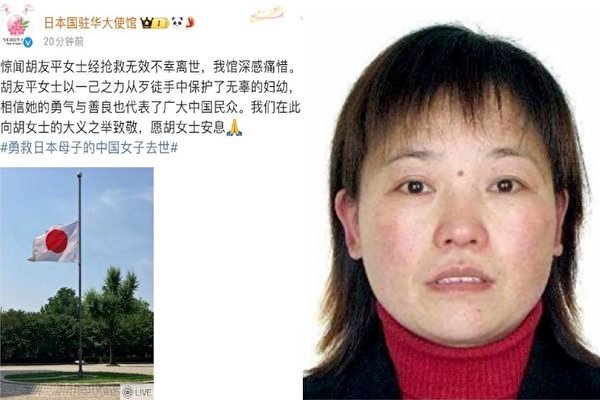Recently, the tragic death of Hu Youping, a female attendant at the Suzhou Japanese School, who sacrificed herself to protect a Japanese mother and child, has garnered attention and sympathy from both Chinese and Japanese communities. Following Hu’s passing on June 26 after being severely injured while shielding a student from an attacker on June 24, there has been an outpouring of donations and messages of support from various sectors of society, aiming to show care and sympathy for her heroic act.
The Suzhou official media reported on June 29 that despite the widespread offers of financial aid and donations in the aftermath of the incident, Hu’s family has declined all contributions and expressed a desire for privacy and to refrain from further disturbances. The family issued a statement acknowledging the kindness and concern they have received but politely declined any donations, emphasizing a wish to return to a peaceful life soon.
The statement continued, “We have received numerous expressions of sympathy and care during this period, and we are truly thankful for everyone’s support. We believe that any individual with a sense of justice and compassion would have made the same choice in such circumstances.”
In response to queries on social media platforms suggesting potential official involvement in the family’s statement, concerns arose regarding the sincerity of the family’s stance and the lack of access for interviews, with Japanese journalists reportedly being denied entry to the hospital where Hu was treated. Criticisms from netizens regarding the official acknowledgment of her bravery and redirection of donations to a government-backed foundation have fueled suspicions of official influence behind the scenes.
On the tragic day of June 24 in Suzhou, Jiangsu Province, a Japanese mother and child were attacked by a Chinese assailant with a knife while waiting for the school bus. Hu Youping intervened to protect them, sustaining severe injuries as she confronted the attacker. Despite efforts to save her, Hu succumbed to her wounds on June 26. Following a day of silence regarding her sacrifice, the Communist Party of China posthumously honored her with the title of “Heroic Sacrifice” on the following day.
The incident has sparked fear among Japanese company employees and families in Suzhou, prompting the Japanese government to raise security concerns with Beijing to ensure the safety of Japanese citizens in China. The Japanese Consulate General in Shanghai also dispatched representatives to Suzhou, urging local authorities to prevent similar incidents from occurring in the future.
On June 28, a farewell ceremony for Hu Youping was held at the Suzhou Municipal Funeral Parlor, where her remains were cremated. The Japanese Embassy in China lowered its flag to half-mast in mourning, and in a gesture of remembrance, the Tianjin Radio and Television Tower displayed Hu’s image and words of tribute that same evening.
Amidst these heartfelt displays, reports surfaced of a tightening of security measures by Chinese authorities to maintain stability. Social media users recounted instances where individuals attempting to place flowers at the bus stop in Suzhou where the incident occurred were dissuaded by plainclothes officers, who confiscated the flowers under the pretext that they would be delivered to the funeral parlor.

